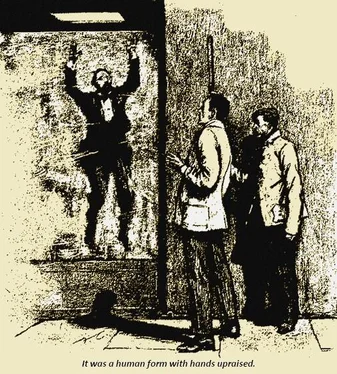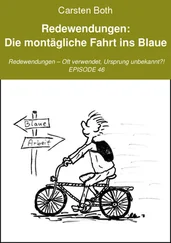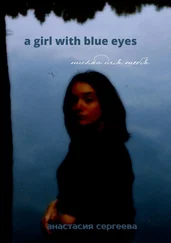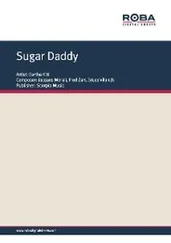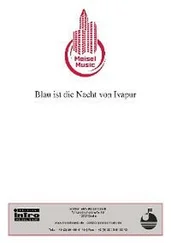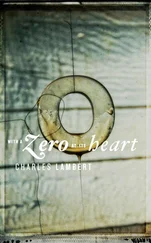Fred White - Below Zero
Здесь есть возможность читать онлайн «Fred White - Below Zero» весь текст электронной книги совершенно бесплатно (целиком полную версию без сокращений). В некоторых случаях можно слушать аудио, скачать через торрент в формате fb2 и присутствует краткое содержание. Год выпуска: 1917, Жанр: Фантастика и фэнтези, Классический детектив, на английском языке. Описание произведения, (предисловие) а так же отзывы посетителей доступны на портале библиотеки ЛибКат.
- Название:Below Zero
- Автор:
- Жанр:
- Год:1917
- ISBN:нет данных
- Рейтинг книги:3 / 5. Голосов: 1
-
Избранное:Добавить в избранное
- Отзывы:
-
Ваша оценка:
- 60
- 1
- 2
- 3
- 4
- 5
Below Zero: краткое содержание, описание и аннотация
Предлагаем к чтению аннотацию, описание, краткое содержание или предисловие (зависит от того, что написал сам автор книги «Below Zero»). Если вы не нашли необходимую информацию о книге — напишите в комментариях, мы постараемся отыскать её.
Below Zero — читать онлайн бесплатно полную книгу (весь текст) целиком
Ниже представлен текст книги, разбитый по страницам. Система сохранения места последней прочитанной страницы, позволяет с удобством читать онлайн бесплатно книгу «Below Zero», без необходимости каждый раз заново искать на чём Вы остановились. Поставьте закладку, и сможете в любой момент перейти на страницу, на которой закончили чтение.
Интервал:
Закладка:
Below Zero
by
Fred M. White
Illustrated by Frank Gillett
LORD RAYBURN turned the letter over in his hand, and a smile crept into those piercing eyes of his, for the great scientist permitted himself to be pleased.
"Now, this is a remarkable thing, Hayter," he said to his chief assistant. "Here is actually a letter from my great antagonist, Miguel del Viantes. He proposes to come and see me. I take it that this is an admission that all these years he has been attacking me unjustly."
George Hayter smiled behind his hand. He was well acquainted with the jealousies and bitter bickerings of scientists the world over, and there was not anywhere a scientist who was not aware of the deadly rivalry between Lord Rayburn and the eminent Spaniard. The fact that they had never met, and that they did not even know one another by sight, made little difference. Therefore Hayter listened discreetly.
"He wants to come and see me," the great man went on. "He says he is going to South America on an experimental mission, of which, of course, he says nothing, but he hints that possibly he may not return. It is his way of holding out the olive branch, I suppose. Anyway, he wants to see me, and, unless I wire him to the contrary, he will motor down here this afternoon. As the visit is entirely private—you will understand why he doesn't want people to know he has been here—you had better arrange for him to leave his car in the lane at the end of the shrubbery, and come here across the garden, through the conservatory. As he drives his own car, this should be easily managed. Then you can bring him here, and leave us alone together. You had better take the afternoon off, and come back about five o'clock. I am relying on your discretion, Hayter."
"Of course," Hayter murmured. "Does Del Viantes say what he is coming for?"
"Well, yes. He is deeply interested in those freezing experiments of mine. I gather that he particularly wants to have a look at the diamond that we are experimenting upon. But he does not say any more than that."
Hayter gave the desired assurance and vanished, leaving the great scientist to his own not unpleasant thoughts. This business was, in a way, the crowning glory of his career. It was soothing to his vanity to know that the great rival whom he had never seen was voluntarily seeking his advice—the advice of the man whom he had been attacking in the scientific press for years. The mere fact that the Spaniard was coming down to Tulham Place secretly made little or no difference.
So the pleased smile was still on Rayburn's face as he turned his back upon the laboratory and walked into the conservatory beyond. Both these buildings jutted out from the side of the house on to a sloping bank which led to a famous rose-garden, and the foundation consisted of a series of tanks and vaults, specially constructed, and something like a huge aquarium, in which Rayburn's freezing experiments were constantly going on. For Rayburn was a rich man, the head of an old family, and, apart from the estate, which would go elsewhere when he died, had a small fortune of his own, which he spent on his research work. And this small fortune would some day pass to his confidential assistant, George Hayter.
But Rayburn was thinking nothing of that at the moment. He wandered round the conservatory amongst his magnificent collection of orchids, of which he was, perhaps, more proud than of his scientific discoveries. He had an almost passionate love for those glorious blooms, and every hour he could spare from his life's work he spent amongst them.
He was still wandering, like some gigantic bee, from flower to flower, when a couple of hours later the far door of the conservatory opened, and from the concrete roofs beyond, which were approached by a flight of steps, Hayter appeared with a tall, thin, foreign-looking man in his wake. The stranger came forward with a smile behind his gold-rimmed glasses, and held out a thin, brown hand.
"May I have the honour, my lord?" he asked.
"Oh, certainly, certainly," said the flattered Rayburn. "This is an historic meeting, Señor Viantes. I quite appreciate the broad spirit that brought you here, and I am only too delighted to ignore the past in the interests of our mistress, the Goddess of Science. Yes, I think you can go, Hayter. I don't think the señor and myself are likely to come to blows."
Hayter discreetly smiled and vanished. With his best manner Rayburn turned to his visitor. He was a very great gentleman, and, when he chose, his manner was as irreproachable as his scientific knowledge.
"I bid you welcome, señor," he said, "and I do hope you are in no great hurry."
"I sail to-morrow," Del Viantes explained.
"Oh, indeed. I trust that, at any rate, you can give me an hour or two. Now, are these flowers anything in your line? I am very proud of my orchids—in fact, I think I value them more than any possession I have. Every moment of my spare time is occupied in here. There is not a collector in the world who does not write to me when he has found anything new—at least, amongst the class of orchids in which I am interested."
"They are rarely beautiful," Viantes said, with a touch of real enthusiasm. "It is a charming hobby, and I can quite understand how it fascinates you. But, alas, I am a poor man, and have no money to spend on anything. But that plant over yonder is extraordinarily beautiful."
"Ah, you have hit upon the gem of my collection; you have a real eye for the beautiful. Now, this is an orchid of the class Gynandria Monandria . That is a marsh orchid from South Africa, and the only one of its kind yet discovered. I prefer them to the epiphytes , exquisite as they are. And "that, of course, is a cypripedium .'"
As Rayburn spoke, he laid his hand almost lovingly on a long spike of bloom that shot upwards a foot or more in height in a series of shaded mauve blossoms with centres and cups graded away to the hue of virgin gold. The exquisite mass clung to the stem and trembled like a cloud of butterflies. Over it Rayburn hung with the rapt adoration of a mother bending over the cradle of her child.
"I am glad you can understand my enthusiasm," he said. "These blooms are almost sacred to me. Ah!"
As Rayburn spoke, his foot seemed to slip on the damp tiles of the conservatory, and as he jerked forward he touched the stem of the plant, and the topmost spray of blossoms broke off as if they had been severed with a knife. He whitened, with an expression almost of pain on his face, then recovered himself and forced a smile to his lips.
"Take that little spray," he said, "and put it in your buttonhole as a memento of the occasion. But I would not willingly have done that to oblige an emperor."
Viantes slipped the spray into his buttonhole and followed his host through the laboratory.
"Pray be seated," Rayburn said. "We have an hour or two before us, and are not in the least likely to be interrupted—in fact, I have respected your wishes to the letter. As you suggested, not a soul knows you are here, except my assistant, and I have sent him off for the afternoon. Your little car is in the lane, I presume, and nobody is likely to notice it there—in fact, the lane leads to nowhere, and is hardly used once a month—and therefore this meeting is as secret as it can be. I am not likely to mention it, unless you give me permission to do so, though perhaps some day this meeting may be historic. But that is for you to say, señor."
"I am profoundly grateful," Viantes murmured. "How deeply grateful I cannot say in words, but I think my presence here is a practical expression of my confidence."
"The feeling is mutual," Rayburn smiled. "And now pray tell me what I can do for you?"
The Spaniard hesitated just for a moment. "To be quite candid, my lord," he said, "I came down here consumed with curiosity to see that diamond which I understand you are experimenting upon. It is no secret, of course, because the scientific papers have been discussing it for weeks. Am I to understand that you claim to remove a flaw in a superimposed diamond by freezing it so many degrees below zero?"
Читать дальшеИнтервал:
Закладка:
Похожие книги на «Below Zero»
Представляем Вашему вниманию похожие книги на «Below Zero» списком для выбора. Мы отобрали схожую по названию и смыслу литературу в надежде предоставить читателям больше вариантов отыскать новые, интересные, ещё непрочитанные произведения.
Обсуждение, отзывы о книге «Below Zero» и просто собственные мнения читателей. Оставьте ваши комментарии, напишите, что Вы думаете о произведении, его смысле или главных героях. Укажите что конкретно понравилось, а что нет, и почему Вы так считаете.
